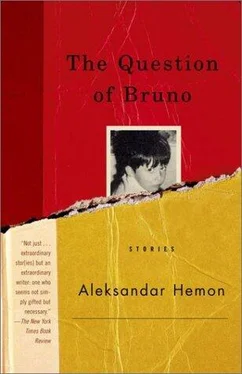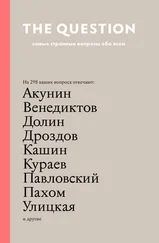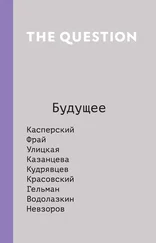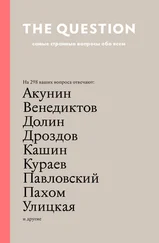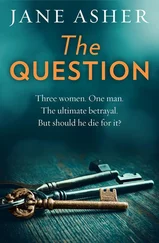To their simple minds, this was the supreme garbage bin, to which they were compelled to offer daily oblations.
They would push the cart onto an altar-like lift, hook up the axle of the cart, then raise it to the edge of the container. One of them would push a red button that would make the altar flip over and empty out the cart. Often, the cart would just maliciously drop in, and they would have to enter the supreme garbage bin, which would groan with pleasure. They would have to lift the cart above their heads, up to their knees in rotting food, and midwife it out of the bin, as a mixture of mayo, Dijon mustard, vinegar, gumbo, and reduced-fat chili crawled down their forearms. They would wash the garbage remnants out of the cart, wash their hands (“Employees must wash their hands,” the sign over the sink said) never being able to wash thin lines of dirt out of the furrows of their palms.
At their lunch breaks, Pronek and Hemon would sit in bilingual silence, gawking at the people occupying Boudin tables: a man with a dragon spewing fire on his forearm and a patch over his eye, slurping jumbo gumbo, meticulously unshaven; a lone, slender, black woman reading Seven Spiritual Laws of Growth , having bitten off only the tip of her crescent croissant; an obese four-member family, with the same pumpkin heads, round girths and oblong calves, as if they belonged to a species that reproduced by fission; a gentleman in a austere navy-blue suit, with standard CEO gray hair and rimless glasses, reading a surfing magazine, while several leaves of romaine lettuce lay neatly stacked next to his styrofoam plate; two teenage boys sporting facial cobwebs and “Smashing Pumpkins” T-shirts, walled off by a parapet of shopping bags, rating breasts (referring to them as “doves”) available in the Boudin French Sourdough Bakery; a bespectacled, perspiring, bald, scrawny man talking to a virgin bag of potato chips (“Do you think I’m afraid of you? Well, you’re wrong!”), which Pronek afterward quickly and warily dumped into a bin.
“What kind of evolutional soup did these people’s lives emerge from?” Pronek wondered (not in quite so many words and in his native language). “How did they become who they are and not someone else?” He would (wrongly) assume that Hemon might understand him, because of the labor experience they had shared, and he would try to talk to him about the tortuous questions of the randomness of life and death, about how easy it was to become someone else, a complete stranger to oneself, once one lost control of “the river of life.” But Hemon did not understand a word of Pronek’s pondering — he would just wearily smile, point at himself with his thumb bent backward and say: “McMannaman!”
Pronek would ride the El back to his (well, Andrea’s) place, standing, with the pain in his legs as solid as steel rods, the car full of exhausted people, exuding sweaty fragrances, bunched together, like asparagus in the supermarket.
Andrea went to Ukraine (“I need some space,” she said to Pronek. “But you can stay here”), and the apartment was being renovated, since Andrea’s parents wanted to sell it. Carwin moved in with Chad, so there were only four Polish construction workers waiting for Pronek, stripping off walls, ripping out door posts, and digging up the floor tiles. There was a nylon path leading to Andrea’s room, weighed down with paint cans. Pronek had to go under the ladder, which kept changing its position every day, and then stumbled through the jungle of wet brushes, obscure tools, strewn crooked nails, and paint smudges to get to the room, which now looked like a monk’s cell: only the bed, a little tower of books, hollow suitcases, a TV, and a mound of filthy, moist clothes decaying in the corner. He would enter it as if it were a submarine that would take him to the placidity of the ocean bottom: nameless fish, flattened by the incomprehensible pressure of the great water, glimmering plankton and evanescent protozoa floating slowly by his window in absolute, mesmerizing silence. He would stay in the room until the workers were gone and then, disregarding the skinned walls and distended door cavities, he would heat up a can of tomato soup, sprinkle it with some oregano redolent of hay. The sink was empty now, all the plates and mold were gone, except for a single fork, which he used to empty a can of soggy tuna. He would slurp the soup in Andrea’s bed, the tuna waiting its turn, watching Headline News: Sarajevo was besieged, there was a severe lack of food, there were rumors of Serbian concentration camps, but he only watched the images to recognize the people in them. Once he thought he saw his father, running down Sniper’s Alley, but he couldn’t be sure, because the man hid his head behind a folded-up newspaper. The man’s gait looked familiar though: big strides, the man slightly bent forward, his right arm swaying like a pendulum.
He would then go to sleep. He stopped turning the light off after he had seen footage of Sarajevo at night, in complete, endless darkness, with bullets and rockets incising and illuminating the sky. His sleep would be well short of restful, marred by nightmares and an anxious bladder.
In the morning, the Polish workers would wake him up with their diligent chitter-chatter. When they began taking the ceiling down they exposed the rib-like beams, and Pronek would have a feeling of waking up inside a whale. The Poles would try to communicate with him, but he couldn’t understand them — even though all the words and sounds were disturbingly familiar, as if he were coming back, and very slowly at that, from an abyss of amnesia. He would sit in the kitchen sipping feculent coffee and gnawing on a sapless Twinkie, watching them busting the ceiling, dust coating their bushy eyebrows and basketball-shaped bellies. They held the hammers in their sturdy hands with wide thumbs and flat, broad nails, slamming the ceiling above them with ease.
Pronek imagined those hammers splitting his head like a watermelon.
Pronek got fired the day he saw a picture, framed with the red edges of the Time magazine front page, of a man in a Serbian concentration camp: the man stood behind three thin lines of barbed wire, skin tautly stretched across his rib cage, facial hair eating his face away. He was not looking at the camera and the reader behind it, Pronek thought, not knowing whether being in the picture would save him or kill him.
Pronek mumbled his way through the Boudin French Sourdough Bakery kitchen, to his locker, while a surge of heat kept pushing his eyeballs out. He put on his red Boudin apron and a little beret (“Don’t wear it like a baseball hat,” Dawn said in passing. “It’s a beret”) and went to empty the waiting trays.
He was listlessly piling up trays on the top of the bin, when a man in a grass-green shirt, with a golfer-shade swinging a golf club in its coronary area said: “Young man, would you please come here!” Pronek obediently walked to the man’s table and stood there, as vague hatred brewed in his muscles. The man had nicely combed blond hair, and Pronek could see the immaculate line disappearing into the pate. The man pointed at the croissant on his plate — there was a monstrous golden seal ring on his pinkie — and said: “I wanted romaine lettuce on my Turkey Dijon. Excuse me, but this is not romaine lettuce. This is iceberg lettuce. What do you have to say about that?”
Pronek was about to go and tell the sandwich person about the problem, but then, abruptly overwhelmed with a desire not to be there at the moment, said: “Nothing.”
“I’d like my Turkey Dijon with romaine lettuce please,” the man said.
“What’s difference?” Pronek said.
“Excuse me,” the man raised his voice, his double chin doubly corrugated in disbelief.
Читать дальше
